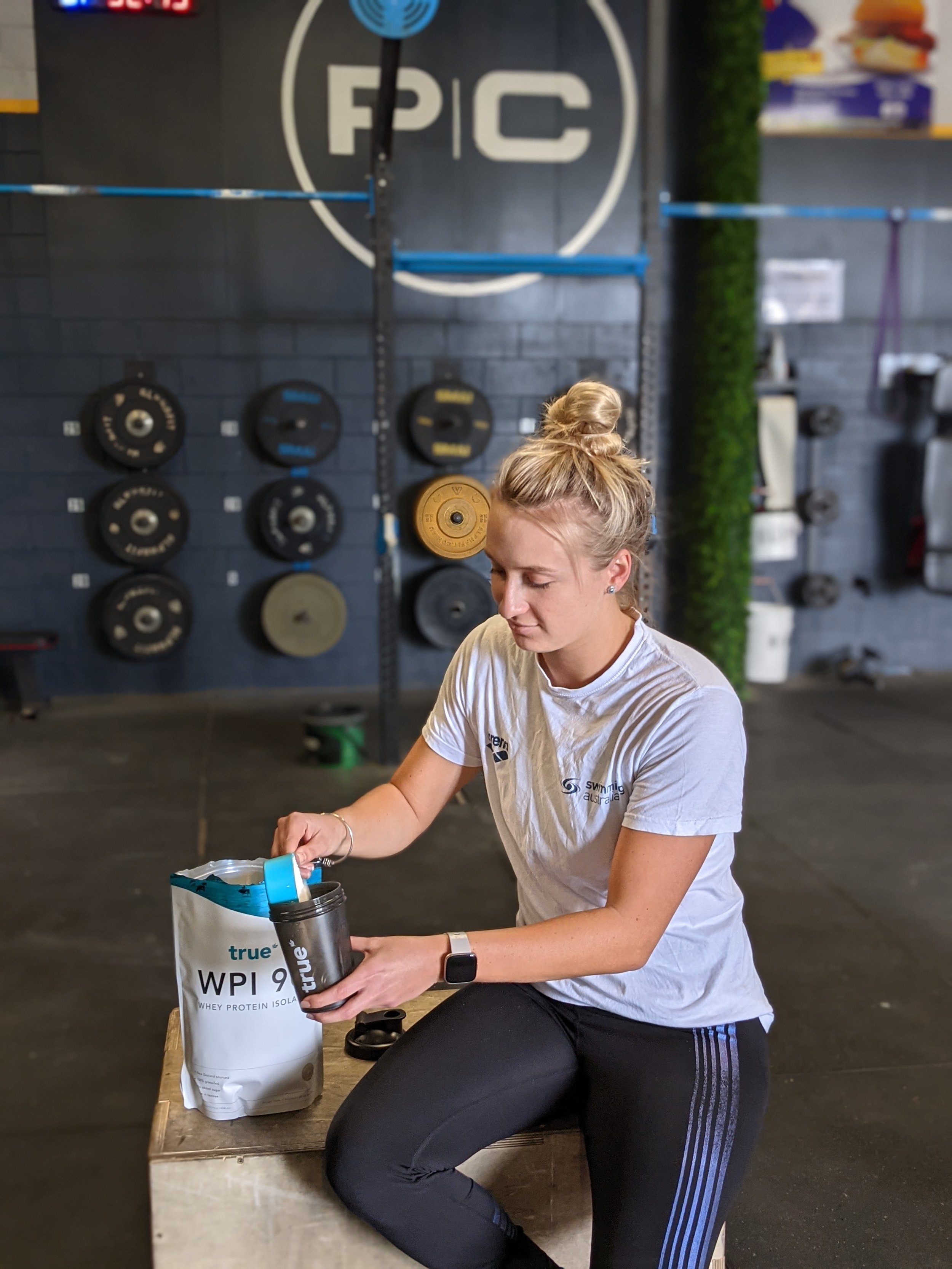Protein Intake for Muscular Recovery and Adaptation
Protein intake plays an important role in the physiological adaptations of training, muscle growth and recovery. The quality, quantity and timing of protein intake both pre and post exercise are all factors that can dictate the effectiveness of the protein benefits.
The Recommended Dietary Allowance (RDA) for healthy adults is 0.8g/kg/day (Cintineo, H. P., Arent, M. A., Antonio, J., & Arent, S. M., 2018). However further studies have shown that adults who are active and train frequently, should aim for at least 1.4-1.6g/kg/day in order to maximise the training benefits. Many people struggle to consume these protein quantities for muscle gains and improved recovery through diet alone, and therefore utilise protein supplements. Protein powder is the second highest grossed product in the sports nutrition market; likely due to the documented advantages of: improved recovery markers; increased muscle mass; performance advancements, and enhanced fat loss (Cintineo, H. P., Arent, M. A., Antonio, J., & Arent, S. M., 2018).
The quality of protein has been identified as a factor contributing to both the acute and chronic adaptations to exercise and recovery. Protein quality is distinguished by the specific type and amount of essential amino acid that is acting, as well as in what form or food it is consumed. There is a lot of evidence in support of Leucine as the most effective protein for training and recovery. Leucine is a branched-chain amino acid (BCAA), which has been shown to be a prerequisite for adequate skeletal muscle protein synthesis (Cintineo, H. P., Arent, M. A., Antonio, J., & Arent, S. M., 2018). Protein found in animal sources foods such as dairy, eggs, and meat have a high biological value (BV), meaning that they contain ample quantities of essential amino acids and are easily absorbed by the body; as well as being readily available and easy to include in most people’s diet. Isolated soy protein is also of high quality and protein content for vegan athletes and individuals (Sports Dietitians Australia, 2011).
Timing of protein is a commonly discussed factor in muscle protein synthesis adaptation and recovery yet has widely mixed evidence about the actual importance and degree of adaptation timing of protein has on these training outcomes. The International Society of Sports Nutrition’s Position Stand on Nutrient Timing claims that the timing for optimal protein synthesis for hypertrophy and strength gains is within the 2-hour post exercise window. However, the majority of available sources agree that the overall amount of protein consumed, and type of exercise performed are the biggest determinants of favourable training adaptations (Kerksick, C. M. 2017).
Here at Premier Conditioning, we stock a wide range of industry leading True Protein supplements, and can take specific orders from members.
- Sarah Mantova
B. ExSS, AES and ASCA Level 2 Coach
0457 325 902 or sarah@premierconditioning.com.au

